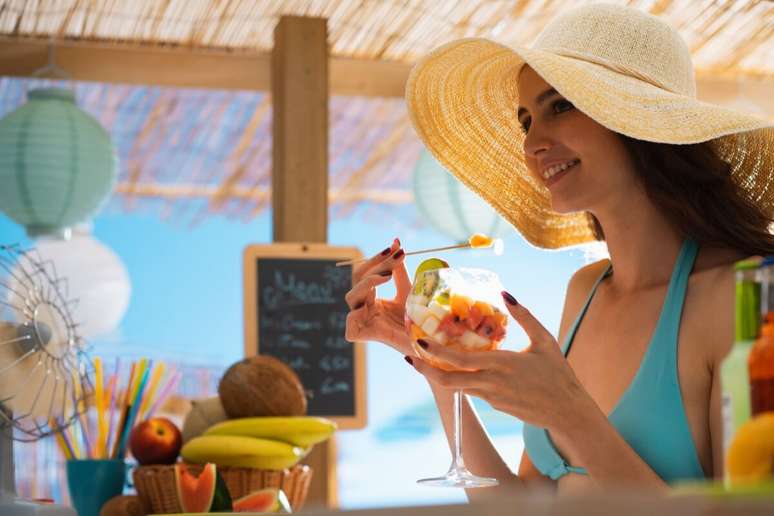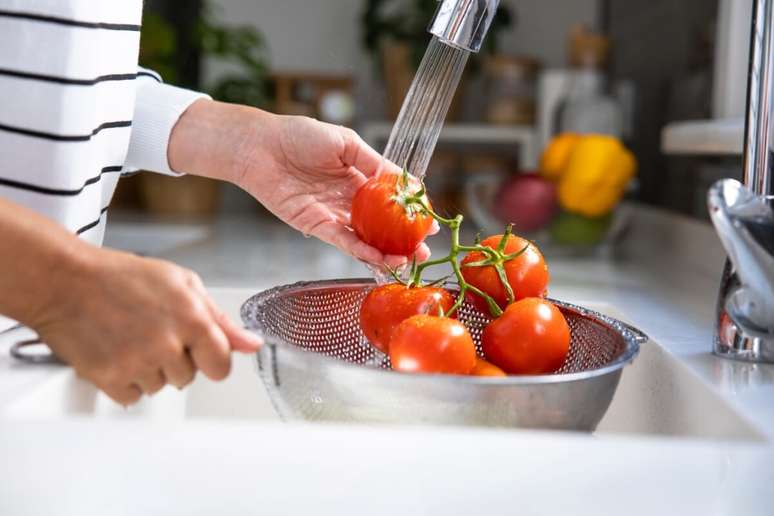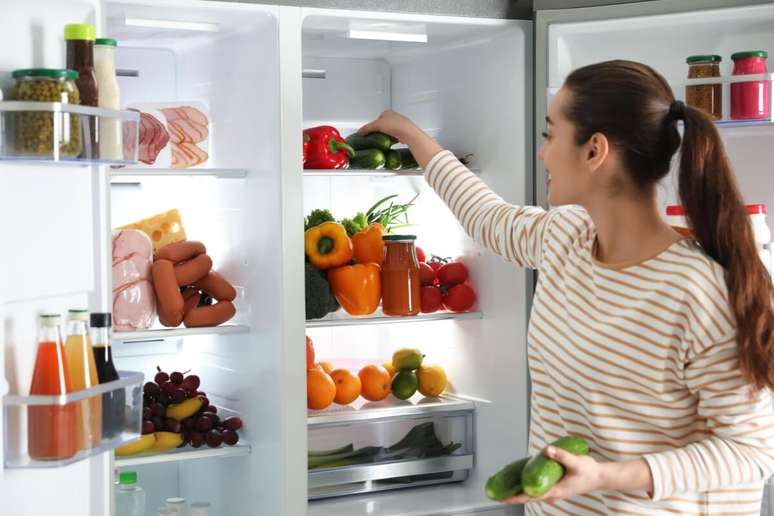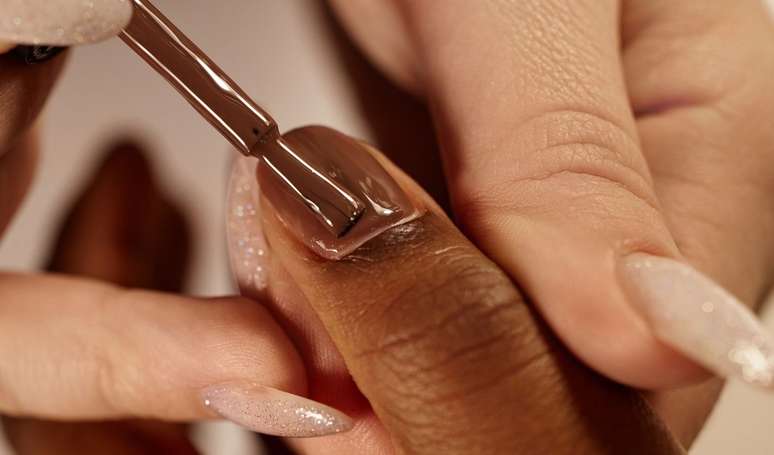Some habits are important to avoid contamination of food by microorganisms
Storing food correctly during the summer period is essential to guarantee the safety and healthiness of food. The high temperatures typical of this season favor the proliferation of microorganisms, such as bacteria, which can cause food poisoning.
“At the market, prefer to take it home immediately and store what is in the refrigerator first. When handling food, always keep your hands very clean. And also avoid eating raw food at this time”, explains Vitória Alves Ribeiro, teacher of Nutrition. at UniSociesc. Microorganisms develop at temperatures between 5°C and 60°C, i.e. the risk is reduced to zero when the food is cooked and reaches a higher temperature.
Be careful with food on the beach
Vitória Alves Ribeiro also underlines the attention needed when eating outside the home, at street vendors or in places set up sporadically in the summerespecially on the beach. Sometimes the professional does not have the technical knowledge and proper facility to cook, which can put the customers’ health at risk.
“It is important to observe the place. Does the person who works wear a uniform? Do you know how to identify the hygiene precautions? What does the place look like inside? Are there refrigerators to store food? How are objects handled? For juices and drinks, check whether and it is prepared with mineral water, even if it is a stall, for example, you must respect the rules and have a permit”, he advises.
Summer is characterized by crowded beaches and, during this period, many swimmers choose to eat on the sand itself. According to Vitória Alves Ribeiro, the ideal is to choose non-perishable options, which do not require an adequate temperature to be stored and have a lower possibility of contamination by bacteria. Options include granola bars, whole-grain cookies, fruit and, of course, bottled water. In any case, the products must be placed in a thermal box to remain sanitized and preserved.

Observe the cleanliness of the place and products
Marina Koffke, also a professor of Nutrition at UniSociesc, follows the same line of thought when it comes to food on the beach. It should be noted that the risks of contracting diseases transmitted by food and water in summer are high. The educator underlines the importance of basic knowledge, but also of knowing how to make the correct choices.
“If you choose to order drinks, food or snacks from the beach kiosks, you must be prepared to avoid possible risks. Check the cleanliness of pans, appliances, sink, counter and the floor itself. Avoid consuming sauces, pâtés, mayonnaise and pre -fried foods. -prepared foods, as they pose a higher risk of contamination. Make sure the drink bottles or cans have the seal intact and are within their expiry date,” he suggests.
As for street vendors, Marina Koffke still underlines the need to check if they have an identity document, and the priority should be to opt for food packaged and transported in thermal bags. “The ideal is to avoid consuming in suspicious places and the best solution is to bring your own snack, of which you know how it was prepared and packaged. You can also make better food choices”, he underlines. If children want to eat a popsicle, for example, it is advisable to opt for well-packaged fruit. If you’re going to eat green corn, ear is better.
Tips for indoor and outdoor storage
Even when you go out to do your shopping at the supermarket you need to pay attention and create awareness of the best routes in the aisles. For example, it is advisable to put refrigerated foods, such as meat and cured meats, last in the cart. When they return home, the scenario is reversed and they must be the first to go to the refrigerator.
THE warehousing of the items must also have correct models. Leftovers from already prepared foods, for example, should be stored in glass or plastic jars rather than in the pans of the refrigerator, and always placed in the upper part of the appliance, where the temperature is higher.

Meal preparation
When preparing food, professors Vitória Alves Ribeiro and Marina Koffke recommend avoiding wooden or plastic cutting boards, which are already banned in restaurants and tend to become more contaminated. It is also essential to wash products, especially fruit and vegetables. The most interesting option is to immerse them in a hypochlorite solution.
“You can use a solution of sodium hypochlorite and filtered water. It is recommended to use one tablespoon of hypochlorite for one liter of water, leave to soak for 15 minutes and then rinse well. Meat and fish must be well refrigerated and packaged in suitable containers”, explains Marina Koffke.
How to know if food is unfit for consumption
Appearance is the main warning sign when you should avoid eating a food. Meats, for example, tend to become darker. Fruits and vegetables are visually undesirable. Bad odor is also a fundamental tool for understanding the quality of food.
“Many people like to eat fish when they are near the beach. In this case, when acquirepay attention to the fish’s eyes. They should be getting brighter and brighter. If they are cloudy it is a sign that the fish is not legal. Another option is to press it with your fingers to see how hard it is and the smell cannot be much stronger than normal”, underlines Vitória Alves Ribeiro.
Is tap water always clean?
In theory, the water we receive at home should be clean and drinkable. After all, it is processed at the stations and must reach our tap ready for consumption. In practice, however, this does not always happen. That’s because, on its journey to the glass, the liquid passes through hundreds of pipes and is stored in the water tanks of homes and buildings, which need to be cleaned at least once a semester. Otherwise, contamination may occur.
“Ideally we consume filtered water, which we purchase in liters or through filter systems, for example. These are the best options, including for cleaning food, cooking and drinking. But, if this is not possible, it is essential to clean the water tank of the water in your home. The water that comes to us is of good quality, but the containers need to be kept clean”, underlines Professor Marina Koffke.
Another alternative is to boil water before using or consuming it. “You can boil water for five minutes, refrigerate it and then drink it. The same goes for ice. There is no point in drinking filtered water and using ice with tap water. We must be careful about all issues involving water”, he underlines.
By Genara Rigotti
Source: Terra
Ben Stock is a lifestyle journalist and author at Gossipify. He writes about topics such as health, wellness, travel, food and home decor. He provides practical advice and inspiration to improve well-being, keeps readers up to date with latest lifestyle news and trends, known for his engaging writing style, in-depth analysis and unique perspectives.


-1iv9d9fl4wd46.png)






